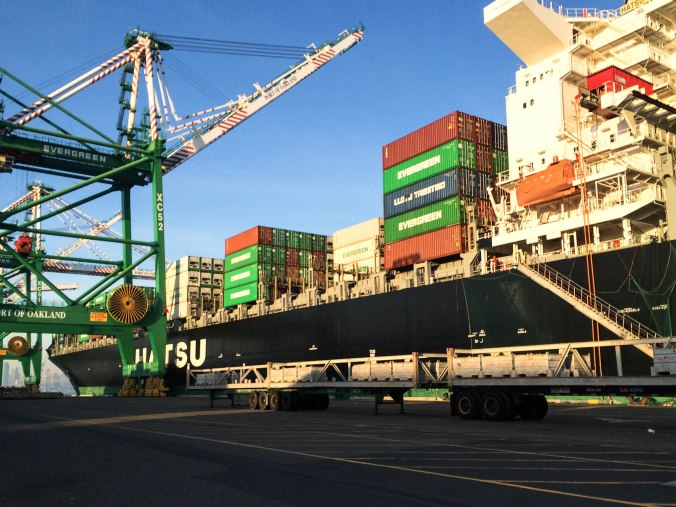 A guest post from Maïa Pal, recently returned from San Francisco. Maïa is currently a Lecturer in International Relations at Oxford Brookes University. Her main research is on the historical sociology of extraterritorial jurisdiction and Marxist theories of international law. She also researches UK student occupations as counter-conduct in the context of a political economy of higher education, and has blogged on student protests in the UK and Québec. And you can follow her on Twitter too.
A guest post from Maïa Pal, recently returned from San Francisco. Maïa is currently a Lecturer in International Relations at Oxford Brookes University. Her main research is on the historical sociology of extraterritorial jurisdiction and Marxist theories of international law. She also researches UK student occupations as counter-conduct in the context of a political economy of higher education, and has blogged on student protests in the UK and Québec. And you can follow her on Twitter too.
After all, if someone is lost, and that person is not someone, then what and where is the loss, and how does mourning take place?
10 years after Judith Butler asked this question in her work Precarious Life, San Francisco organisers Thea Matthews, aged 27 and Etecia Brown, aged 24, gave me some answers.[1] ‘Leaderful’, ‘sustainable’, ‘multidimensional’: “BlackLivesMatter is more than a hashtag, logo or slogan, it’s a lifestyle.” Their demands against police brutality are practical, short-term and realistic. The demands consist of ensuring enforcement, transparency, mental health awareness in training, demilitarisation, two-way accountability, and community work. ‘Police should be like fire-fighters, heroes with red trucks!’, we chuckled.
Some of these demands are already being implemented; in Portland, New York, Richmond. As public policy solutions they could be quickly put in place. Nevertheless, it is absolutely clear that such goals, however important and at the core of the movement, barely scratch the surface of the problem. BlackLivesMatter activists want to achieve long-lasting institutional change and an end to the more covert social, political and economic subjugation of black people. They explicitly revive the terms of colonisation and slavery because these do not belong to the past; an experience both organisers have observed and lived through personally. Without equal access to education, jobs, and political representation; with lower life expectancy, socially and in front of a police gun; with mental health conditions, fear and loss of hope in their humanity, black people are still in chains.
The point here is not to engage a discussion on the history and intricate forms of these processes of exploitation, white supremacy and patriarchy. Although necessary and important, this piece discusses instead resistance to these processes, and specifically to what these organisers aptly described as ‘psychological warfare’. This resistance means healing people who are suffering, have lost all power and hope for resisting, and building communities that care for each other beyond the myths of freedom, property and consumerism.





